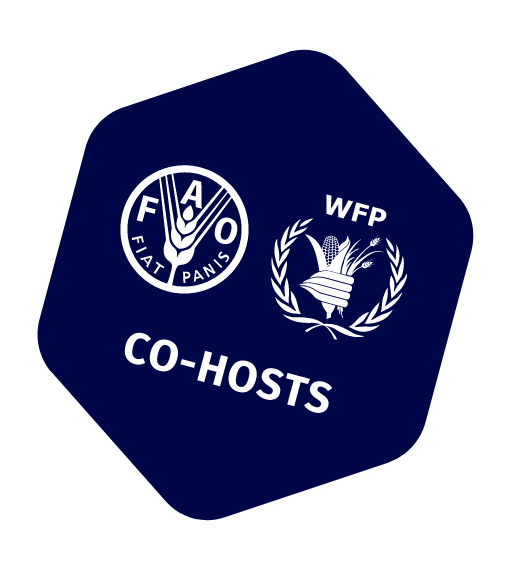Introduction to Parallel Sessions
show more add to my calendar- Monsterrat Barroso (WFP)
- Hicham Assabir (FAO)
- Julia Wittig (OCHA)
A mix of high-level panel discussions, smaller thematic presentations and interactive sessions will give you the opportunity to learn more about anticipatory action, including its opportunities and challenges, and to enquire about specific regions and topics that interest you personally.

- Anna Farina, Start Network, Crisis Anticipation and Disaster Risk Finance Operations Lead - Mathieu Dubreuil, WFP, Senior Programme Advisor for Climate Risk Insurance
Speakers:
- Md. Mohsin, Secretary, Ministry of Disaster Management and Relief (MoDMR)
- Niger Dil Nahar, WFP Bangladesh, Programme Policy Officer,
- Kazi Shahidur Rahman, Office of the UN Resident Coordinator, Bangladesh, Humanitarian Affairs Specialist
- Ashraful Haque, Start Network, Forewarn Coordinator, Bangladesh
Come celebrate the Anticipation Hub and interact with its creators, partners and users to discuss the new tools and features on the Anticipation Hub
What 1st birthday present can you share with the Anticipation Hub? Your feedback! Tell us what you love about the Anticipation Hub and guide us on how to improve it to meet your needs. The interactive session will take place in gather.town and participants can visit different areas to learn and exchange feedback on different features/tools of the Hub, including the
1) evidence and early action database,
2) the global map of anticipatory action projects,
3) community directory,
4) website interface and more.
Get your questions ready!
Facilitators:
- Lydia Cumiskey, Anticipation Hub, Partnership’s advisor
- Raymond Zingg, IFRC Asia-Pacific Regional Office, Regional FbF Coordinator
Anticipation Hub Team and Partners
Join us at the Anticipatory Action Fruit & Veg market stall to explore anticipatory action with a colourful and tasty twist!
Have you ever thought about what we could learn about anticipatory action from avocados, pomegranates or garlic? Join our anticipatory action market stall to explore representative fruit and vegetables selected by our speakers from all corners of the globe (see more here). Continue the conversation by sharing your tasty recipes for anticipatory action via our Pinboard and interactively in GatherTown.